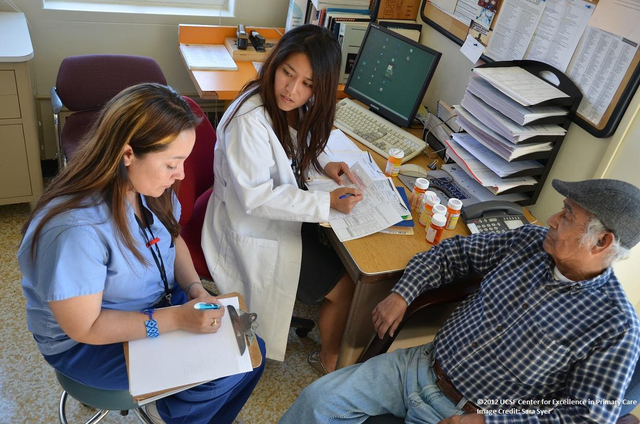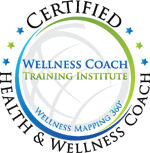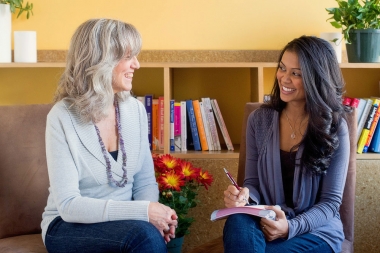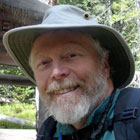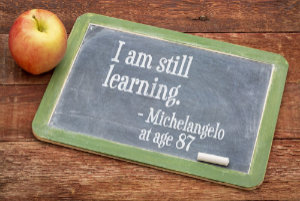It took Barbara Hustedt Crook an awfully long time to get around to writing her first musical. She started last year, shortly before her 60th birthday. Her friend an d collaborator, Robert Strozier, waited even longer; he's 65. It's not that they didn't have the creative chops for the job. The two have spent their careers writing and editing in New York City, and Crook has a background in performing, singing and piano. But creating a musical always felt just out of reach--until now.
d collaborator, Robert Strozier, waited even longer; he's 65. It's not that they didn't have the creative chops for the job. The two have spent their careers writing and editing in New York City, and Crook has a background in performing, singing and piano. But creating a musical always felt just out of reach--until now.
"Somehow I have a  confidence I didn't have before," says Crook. "I find that my brain makes leaps it didn't make so easily. I can hear my inner voice and trust instincts and hunches in ways I didn't used to."
confidence I didn't have before," says Crook. "I find that my brain makes leaps it didn't make so easily. I can hear my inner voice and trust instincts and hunches in ways I didn't used to."
And, says Strozier, they're both a lot more willing to take chances than in the past. "At a certain age," he says, "you either get older or you get younger. If you get younger, you venture out and take risks."
Risk-taking seniors making daring mental leaps? That's not the stereotype. Indeed, until quite recently most researchers believed the human brain followed a fairly predictable developmental arc. It started out protean, gained shape and intellectual muscle as it matured, and reached its peak of power and nimbleness by age 40. After that, the brain began a slow decline, clouding up little by little until, by age 60 or 70, it had lost much of its ability to retain new information and was fumbling with what it had. But that was all right because late-life crankiness had by then made us largely resistant to new ideas anyway.
That, as it turns out, is hooey. More and more, neurologists and psychologists are coming to the conclusion that the brain at midlife--a period increasingly defined as the years from 35 to 65 and even beyond--is a much more elastic, much more supple thing than anyone ever realized.
Far from slowly powering down, the brain as it ages begins bringing new cognitive systems on line and cross-indexing existing ones in ways it never did before. You may not pack so much raw data into memory as you could when you were cramming for college finals, and your short-term memory may not be what it was, but you manage information and parse meanings that were entirely beyond you when you were younger. What's more, your temperament changes to suit those new skills, growing more comfortable with ambiguity and less susceptible to frustration or irritation. Although inflexibility, confusion and even later-life dementia are very real problems, for many people the aging process not only does not batter the brain, it actually makes it better.
"In midlife," says UCLA neurologist George Bartzokis, "you're beginning to maximize the ability to use the entirety of the information in your brain on an everyday, ongoing, second-to-second basis. Biologically, that's what wisdom is."
Read more: http://www.time.com/time/magazine/article/0,9171,1147163,00.html#ixzz0cRtOxGQb
If your mind does indeed grow more agile as you age, one of the things that may help it do so is the amount of glue you carry around in your brain--glia (Greek for glue) being what the 19th century German anatomists called it. Only about half the mass of the brain is composed of gray matter, or nerve cells; the rest is white matter, the connecting tissue that, in a sense, glues it all together. Much of that white matter is made of conductive nerve strands, and covering each fine wire is a fatty sheath of myelin that keeps nerve signals from sputtering out or cross firing during transmission. "Myelin is what makes us human," says Bartzokis. "We have 20% to 30% more than other primates do."
Throughout our lives, fresh layers of myelin sheathing are laid down in the brain. In infants and children, who grow increasingly coordinated as they mature, the bulk of that takes place in the motor and sensory lobes. If we acquire better reasoning skills in middle age, Bartzokis long suspected, it would follow that most of the myelin added in those years would appear around the signal-transmitting axons in the higher brain regions that are the seat of sophisticated thought. Essentially, the brain spends decades upgrading itself from a dial-up Internet to a high-speed version, not fully completing the job until age 45 or so.
To test that idea, Bartzokis used magnetic resonance imaging to study the volume and distribution of white matter in 300 healthy subjects from 18 to 75 years old as well as in hundreds of older people suffering from such brain-related ills as Alzheimer's and Parkinson's diseases. As he suspected, the healthy adults had the most myelin in the frontal and temporal lobes--where big thoughts live. The quantity of sheathing reached its peak around 45 or 50, exceeding the amount in unhealthy older subjects and healthy younger ones.
"This last little bit of myelination essentially puts us online," Bartzokis says. "You may not have the same amount of information you had when you were 20, but you can use it better in everyday life."
It's not just the wiring that charges up the brain as we age, it's the way different regions start pulling together to make the whole organ work better than the sum of its parts. For all its plasticity, the brain is a specialized machine, with specific regions handling specific operations. The greatest divergence comes between the left and the right hemispheres, which often work almost independently of each other. That is not such a bad thing because one hemisphere can be busy writing a grocery list or solving an equation while the other scans the environment and tends to other basic chores. As we age, however, the walls between the hemispheres seem to fall, with the two halves working increasingly in tandem. Neuroscientist Roberto Cabeza of Duke University dubs that the HAROLD (hemispheric asymmetry reduction in older adults) model, and judging by his work, the phenomenon is a powerful one.
Read more: http://www.time.com/time/magazine/article/0,9171,1147163-2,00.html#ixzz0cRtj0bd4


